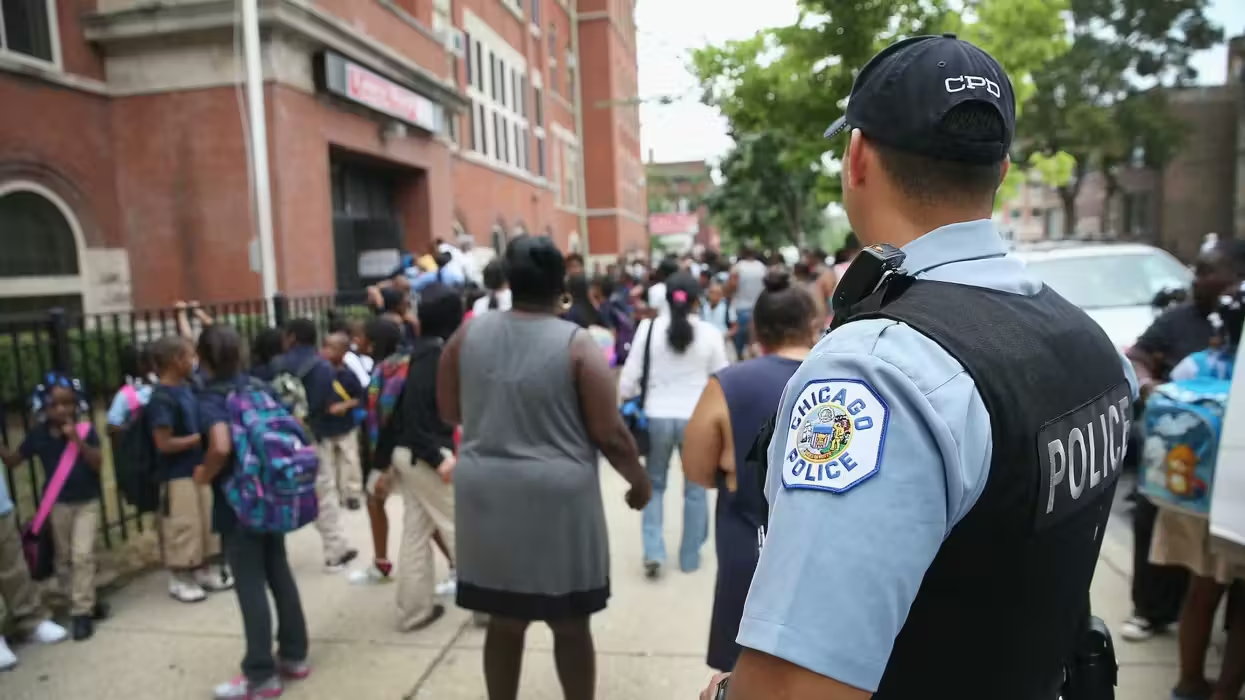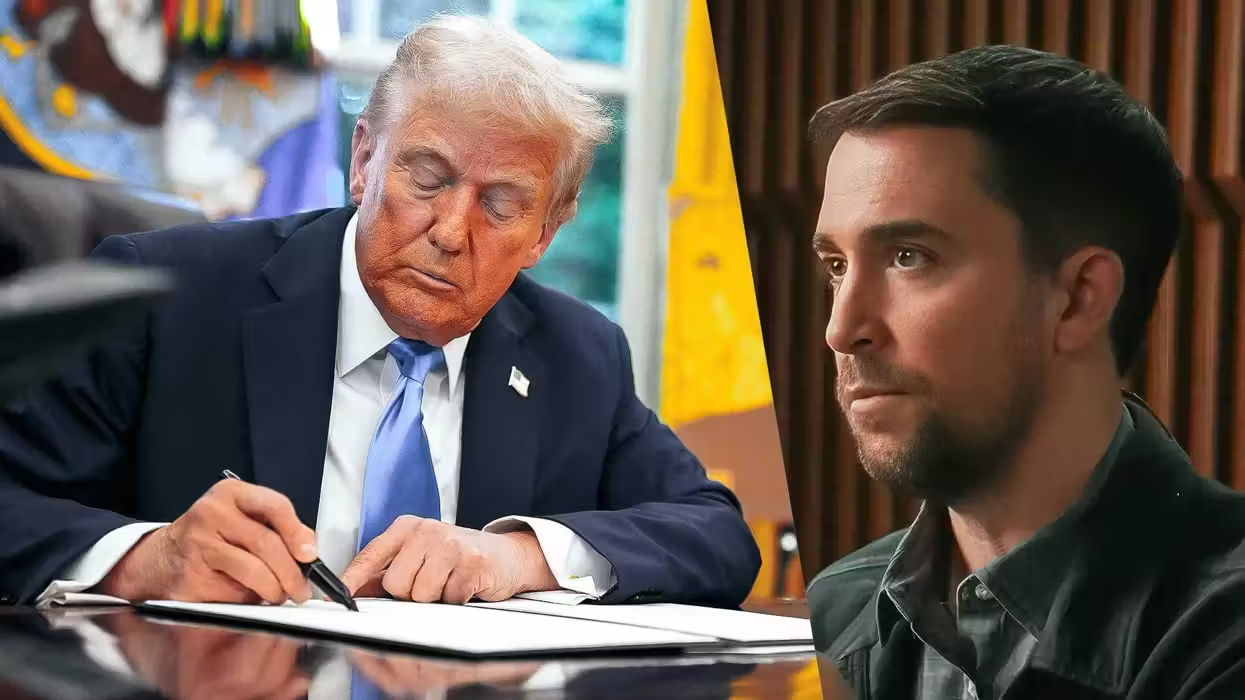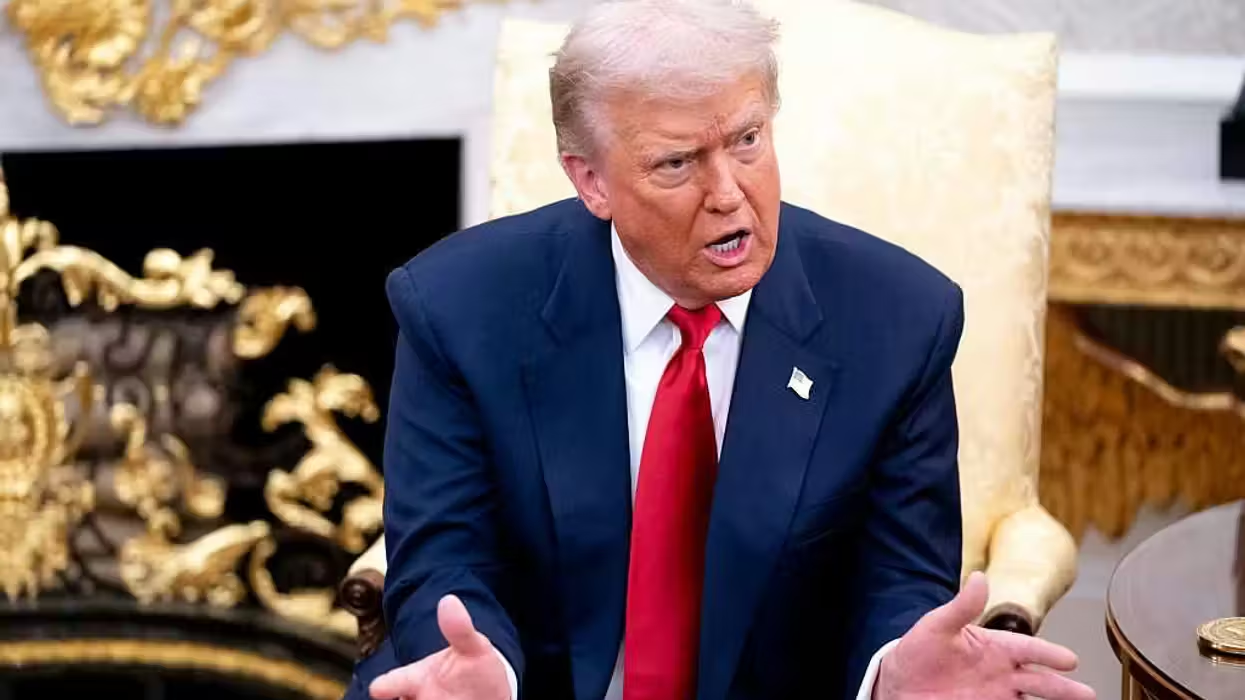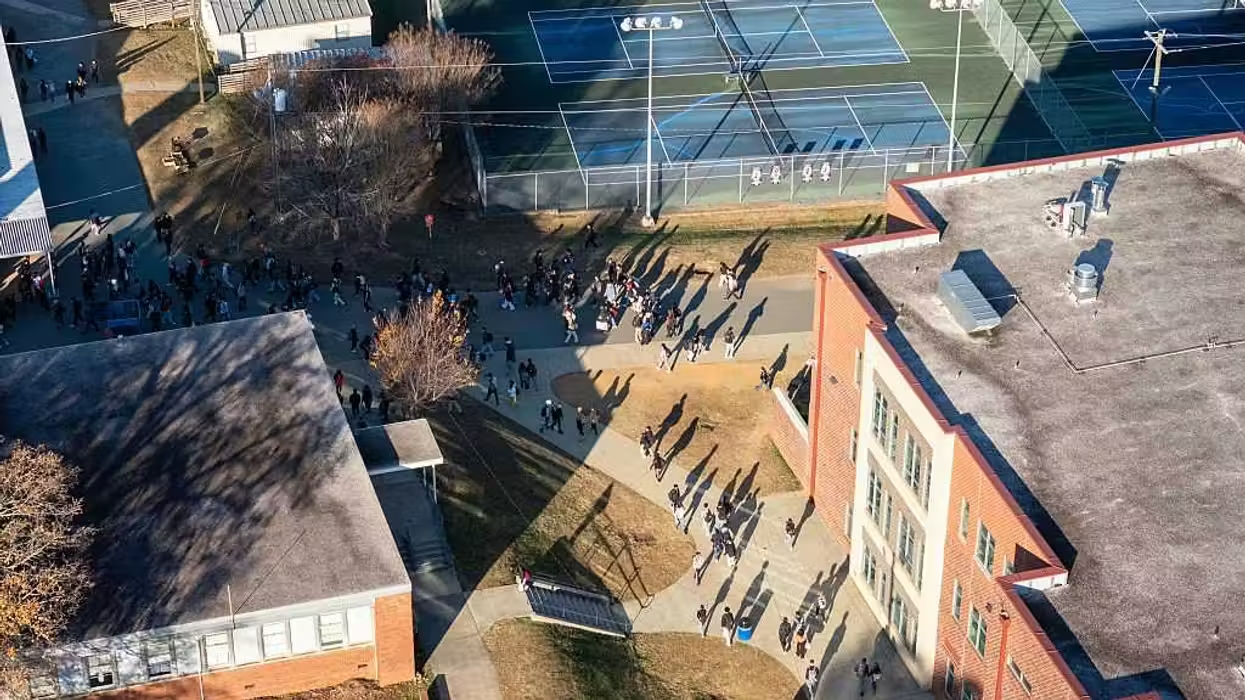
© 2025 Blaze Media LLC. All rights reserved.
Chicago Politician Proposes Ordinance Preventing Gov't From Using Electronic Blackouts
February 16, 2012
"...we don't even want it considered here."
CHICAGO (The Blaze/AP) -- Protesters are coming by the thousands to Chicago, armed with smartphones, video cameras and social media links that will allow them to instantly map strategy, share plans and disseminate images of what's happening.
Right as the police department and others prepare for the crowds associated with the G-8 and NATO summits to take place in the city in May, one city councilman want to make sure the lines on electronic communication remain open -- although he says he has no reason to think they would actually be shut down.
We've seen before that authorities have recently been prone to pull the plug to electronic resources used in protests and riotous situations. In August, authorities with the San Francisco Bay Area Transit System blocked cell signals in order to help prevent protests. The government in Egypt in Jan. 2011 also stopped cell service due to violence during democratic protests.
O
One city councilman doesn't even want turning off communication in this way to be on the discussion table.
"We're putting down a marker and saying, this has happened in other places and we don't even want it considered here," said Alderman Ricardo Munoz, who will propose his anti-crackdown ordinance at a Chicago City Council meeting Wednesday.
Munoz said he has no indication that police are contemplating shutting down cellphone use or social media sites. And aides to Mayor Rahm Emanuel and Police Chief Garry McCarthy say the leaders have no plans to put any restrictions on social media or other communications.
But Munoz's determination to take the tactic off the table is an acknowledgement that the front line at mass protests is increasingly technological as officials and protesters search for a balance between security and freedom of speech. It also illustrates a growing nervousness about clashes during the summits in a city that just last week agreed to pay more than $6 million to hundreds of protesters for wrongful arrests by police during a 2003 Iraq War demonstration.
"Chicago has a painful history going back to the Red Squad and 1968," said Munoz, referring to a police intelligence unit that into the 1970s spied on everyone from anti-war activists to the PTA and to the still-vivid footage of police beating protesters during the 1968 Democratic National Convention.
In San Francisco last year, transit officials were roundly criticized after cutting off cellphones in subway stations to disrupt planning for a protest over a transit police shooting. Bay Area Rapid Transit officials defended the action as legal but later passed a policy to allow such a move only in response to extraordinary threats.
BART was the first and only government agency in the U.S. to block electronic communications as a way to quell social unrest, but its ensuing policy was also the only one of its kind, according to Linda Lye, an American Civil Liberties Union attorney.
More infamously, the Egyptian government shut down all Internet access last year after demonstrators used social media to coordinate protests and circulate images of brutality during the government crackdown. The move backfired by intensifying the protests, and the government eventually fell.

"In this day and age, social media is central to the First Amendment," said Andy Thayer, a Chicago activist who is helping plan the NATO/G8 protests. He said the ability to take photographs and video and post them on the Internet as events unfold is crucial for organizing and to alert the public.
Munoz's ordinance, a draft of which he gave to The Associated Press, explicitly prohibits the police from "shutting down mobile tower communications" during the summits, "using confiscated equipment to monitor or block mobile phone and Web access" and selectively blocking access to the Internet and social media sites.
McCarthy told reporters recently that police will not "do anything about the First Amendment except protect it."
But the City Council recently gave Emanuel extraordinary powers to make decisions regarding the summits in certain circumstances. And a spokeswoman for McCarthy would not say definitively that he wouldn't change his mind about needing to block communications in an emergency.
Blocking cellphone and Web access is both exceedingly simple and complicated -- with the physical act of rendering cellphones and other hand-held electronic devices useless being as easy as flipping a switch at a base station of a cellphone tower.
Officials also could use signal jamming devices similar to ones used by the military in war zones.
The legality of such steps isn't always clear, however.
"Under most circumstances they're not allowed to do that, (but) if there is a riot and rioters are burning a building, we don't know whether a temporary shutdown would be constitutional," said Eugene Volokh, a UCLA law professor who specializes in constitutional law and cyber law.
He said things get murky if police tried, for example, to take down a Facebook page where people are exchanging ideas about politics because one person is urging others to throw a Molotov cocktail at a particular building.
But some officers say the city ought not rule out blocking communications if protests get out of hand.
"I'm just concerned about officer safety and citizen safety," said Mike Shields, head of the Chicago Fraternal Order of Police. "... If we have to take this action, if it's within the framework of the Constitution, then we have to consider it."
Want to leave a tip?
We answer to you. Help keep our content free of advertisers and big tech censorship by leaving a tip today.
Want to join the conversation?
Already a subscriber?
more stories
Sign up for the Blaze newsletter
By signing up, you agree to our Privacy Policy and Terms of Use, and agree to receive content that may sometimes include advertisements. You may opt out at any time.
Related Content
© 2025 Blaze Media LLC. All rights reserved.
Get the stories that matter most delivered directly to your inbox.
By signing up, you agree to our Privacy Policy and Terms of Use, and agree to receive content that may sometimes include advertisements. You may opt out at any time.





